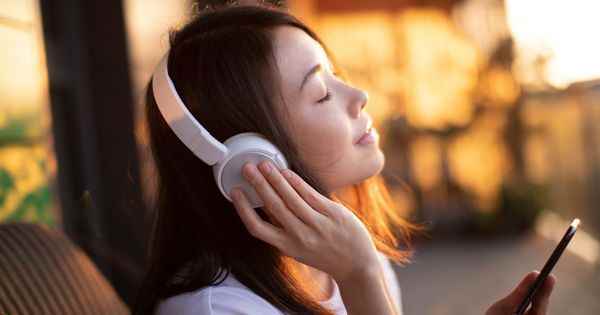Published ,
Reading 3 mins.
On the occasion of the launch of its “ASMR Sessions” project, the music streaming platform Deezer unveils a study on this phenomenon which relaxes 33% of French people and irritates 19%. Why such differences in feelings?
Triggers or triggers, whispering or whispers, brushing face and tapping… If you do not know these terms, you are surely not an aficionado ofASMR (Autonomous sensory meridian response). Probably more because these visual or auditory stimuli that are the subject of many videos on the internet irritate you than because of ignorance, 56% of people in the world engage with this type of content. At least that’s what a study by Deezer reveals, which looked at the effects of ASMR on different categories of the population.
As part of the release of its “ASMR Sessions” project, the music streaming platform interviewed 12,000 people from six different countries (France, Brazil, Germany, Great Britain, United States and Mexico) to find out their feelings. faced with this practice, which she defines as “the sensory reaction that some people experience when listening to certain sounds or voices”. And among the French, these reactions are divided.
Relaxation, stress reduction and sleep aid for 30% of French people
From “top reasons fans love ASMR“, we find relaxation and stress reduction, for 33% and 30% of them respectively. They are also almost a third (30%) to watch or listen to it for help sleep. Generation Z (those born between 1995 and 2010) are particularly fond of this type of content, since 28% listen to it simply for entertainment. “People who listen to ASMR also say feel chills and goosebumps (9%)”, notes the study. And for 21% of respondents, “French was the preferred accent to hear in ASMR content”. Female voices are also particularly popular (46%).
The elders, the most annoyed
On the other hand, the sensations may be significantly less pleasant. About one in ten French people (11%) explains feeling embarrassed or even bored against ASMR, and this practice tends to irritate 19% of respondents. Seniors are generally the most annoyed: 28% of baby boomers (those born between 1945 and 1965) versus 15% of Gen Z. Chewing noises (for 56%) and mouth noises (43%) have been “voted the most unpleasant ASMR sounds by respondents”.
A case of oxytocin
“Feeling relaxed when hearing someone’s light breathing or whispering means that their virtual presence brings you comfort.t, analyzes Dr. Craig Richard, founder of ASMR University. ASMR content can tap into our desire for safe, close, and personal connections.” And to add: “The data confirms that people can have very different preferences when it comes to ASMR content. ASMR triggers and responses are similar to those of oxytocin, often referred to as the love hormone. These differences may be explained by genetics, which influence responses to oxytocin. Other factors, such as age, may have an impact and it is also possible that a positive response to ASMR may fade with age. Also, younger age groups are more likely to have been positively introduced to ASMR content.”
Consult a therapist online
“Everyone reacts differently to ASMR”
“It’s really fascinating to see how everyone reacts differently to ASMR, rebounds Alexander Holland, Chief Content and Product Officer at Deezer. What was once considered a niche community is no longer. Whether you love it, hate it, or still remain neutral, it’s worth continuing to explore ASMR to find a trigger that’s enjoyable. That’s why I can’t wait for our listeners to discover our ASMR Sessions.”
These are already available on the platform. When writing Doctissimo, two journalists listened to the ASMR version of Alicia Keys’ song Fallin’: one fell asleep, the other said she was frustrated!
Read also

To know your ASMR level, take the test !
